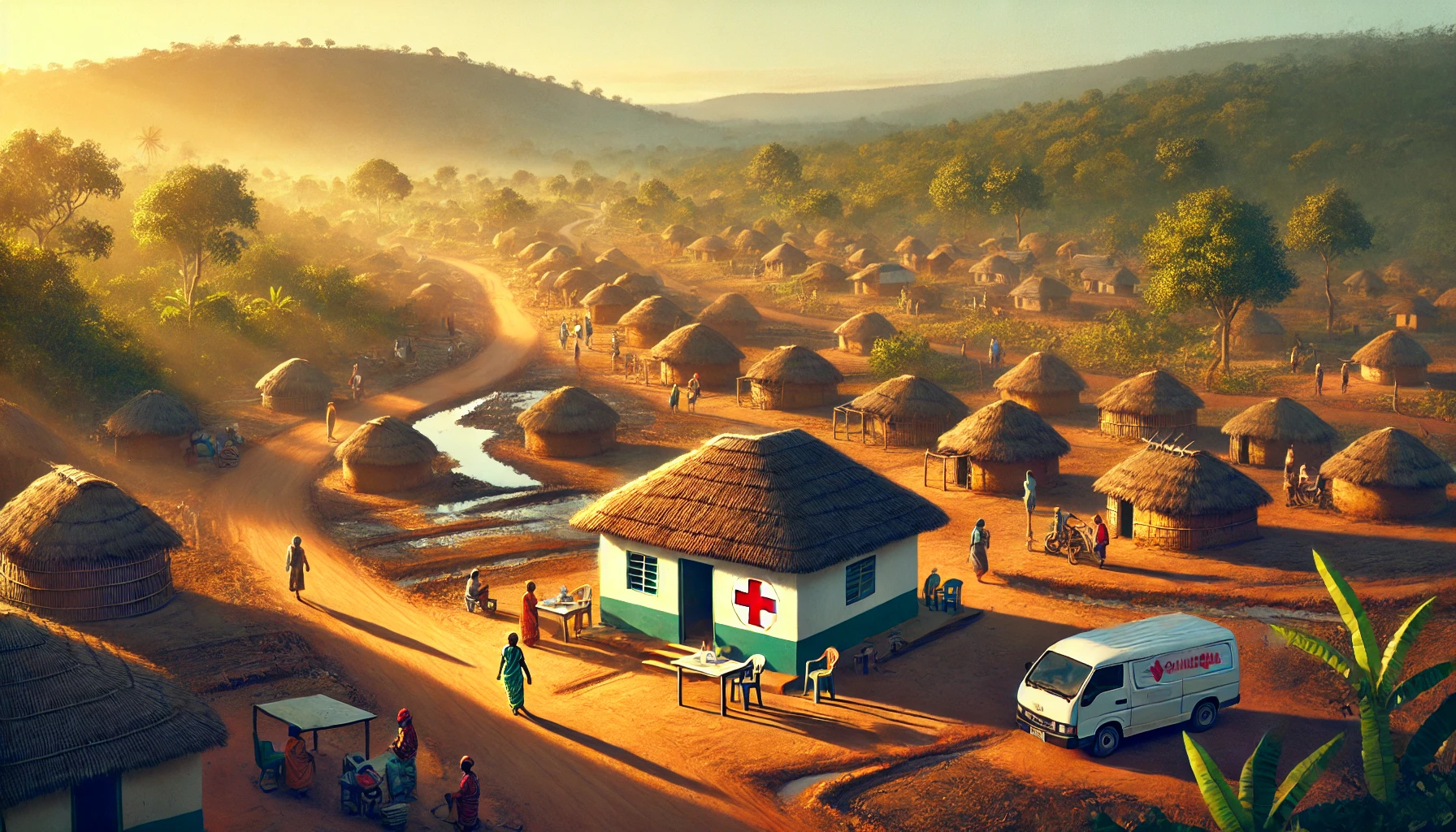The Hidden Cost of Healthcare: How Out-of-Pocket Payments Fuel Poverty in Guinea
Out-of-pocket health payments in Guinea significantly increase extreme poverty, especially in rural areas and among vulnerable groups, highlighting an urgent need for health financing reforms to achieve universal health coverage.

The World Bank's report, authored by Yao Thibaut Kpegli, Teegwende Valerie Porgo, and Zenab Konkobo Kouanda, provides a detailed analysis of the impact of out-of-pocket (OOP) health payments on poverty levels in Guinea. The findings are significant, revealing that these payments have exacerbated extreme poverty in the country, particularly among the most vulnerable populations. The report is based on data from the 2018-2019 Guinea Living Standards Measurement Study (LSMS) and financial commitments made by the state and its partners for the period 2020-2024. The study underscores the heavy burden of healthcare costs on Guinean households, highlighting how these costs have increased the prevalence of extreme poverty by 2.1 percentage points, the normalized poverty gap by 0.7 percentage points, and the severity of extreme poverty by 0.3 percentage points. This increase is not uniform across the country; rural areas and certain regions like Faranah, N’Zerekore, and Labe are more severely impacted than others, such as the capital, Conakry. Additionally, the burden is particularly heavy on specific demographic groups, including the elderly and infants.
Guinea’s Struggle Toward Universal Health Coverage
Guinea, like many other developing countries, faces significant challenges in achieving universal health coverage (UHC). Despite the recognition of health as a universal right under Article 25 of the 1948 Universal Declaration of Human Rights and the Sustainable Development Goals (SDGs), which emphasize the need for financial risk protection and access to essential health services by 2030, Guinea is still far from realizing these goals. The report reveals that in 2021, more than half of the total health expenditure in Guinea was borne by households, a situation attributed to low public funding and inefficiencies in resource allocation. Public health funding in Guinea remains below the sub-Saharan African average, with just 0.9% of GDP allocated to health in 2019, compared to 2% for the region. This is well below the minimum requirement of 5% of GDP needed for progress toward UHC. In contrast, more significant portions of GDP are allocated to general public administration and defense, highlighting the country’s misplaced priorities.
Misalignment of Health Financing and Poverty Impact
The report also highlights the misalignment of public and external health financing with the actual impact of OOP payments on extreme poverty. Using concentration indices, the authors demonstrate that regions contributing less to national extreme poverty received disproportionately larger shares of financial commitments, suggesting inefficiencies in the allocation of resources. For instance, the capital city of Conakry, which experienced the lowest increase in poverty due to OOP payments, received a larger share of financial resources compared to regions like Faranah and N’Zérékoré, which were more severely affected. This misalignment is concerning, as it suggests that the regions and populations most in need of financial support are not receiving adequate resources.
The Urgent Need for Health Financing Reforms
The study’s findings have significant implications for policymakers in Guinea. The increase in extreme poverty due to OOP health payments underscores the urgent need for reforms aimed at improving the efficiency and equity of health financing in the country. To achieve UHC, the report calls for a reallocation of resources to ensure that public health funding is directed toward the regions and populations most in need. This will require not only an increase in public health spending but also improvements in the efficiency of resource allocation. The report also emphasizes the importance of prioritizing the most vulnerable groups, such as the elderly and infants, in health financing decisions. These groups have been disproportionately affected by the increase in extreme poverty due to OOP payments and should be at the center of any efforts to improve financial protection in the health sector.
A Call to Action for Policymakers
Moreover, the findings suggest that achieving UHC in Guinea will require a comprehensive approach that addresses the root causes of inefficiencies in health financing. This includes strengthening the capacity of the health system to deliver essential services, improving the management of health resources, and enhancing the accountability of health institutions. The report also highlights the need for greater coordination between public and external financing to ensure that resources are used effectively and efficiently. In conclusion, the World Bank's report provides a critical analysis of the challenges facing Guinea in its efforts to achieve UHC. The findings underscore the urgent need for reforms in health financing to reduce the burden of OOP payments on households and to ensure that the most vulnerable populations are adequately protected from the financial risks associated with accessing health services. These reforms are essential for reducing poverty and improving health equity in Guinea, and they should be a priority for policymakers in the country. The report's findings are a call to action for the government and its partners to take bold steps toward achieving UHC and improving the lives of all Guineans.
- FIRST PUBLISHED IN:
- Devdiscourse










